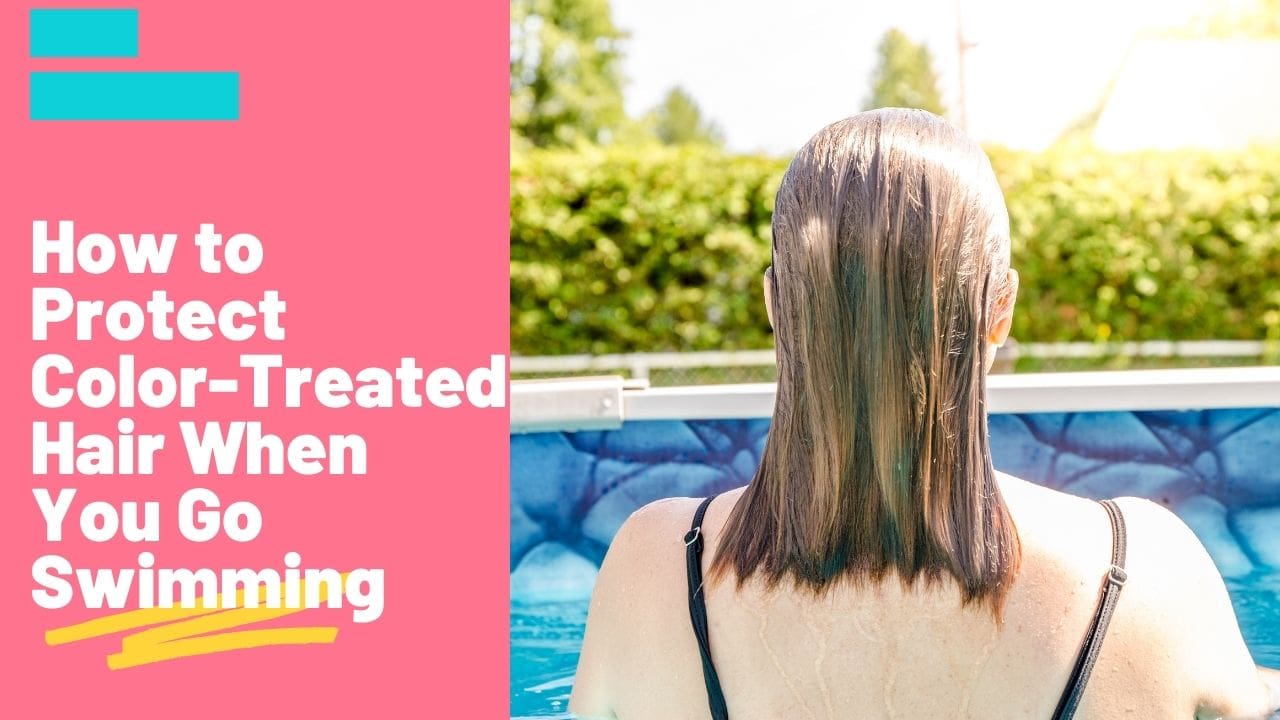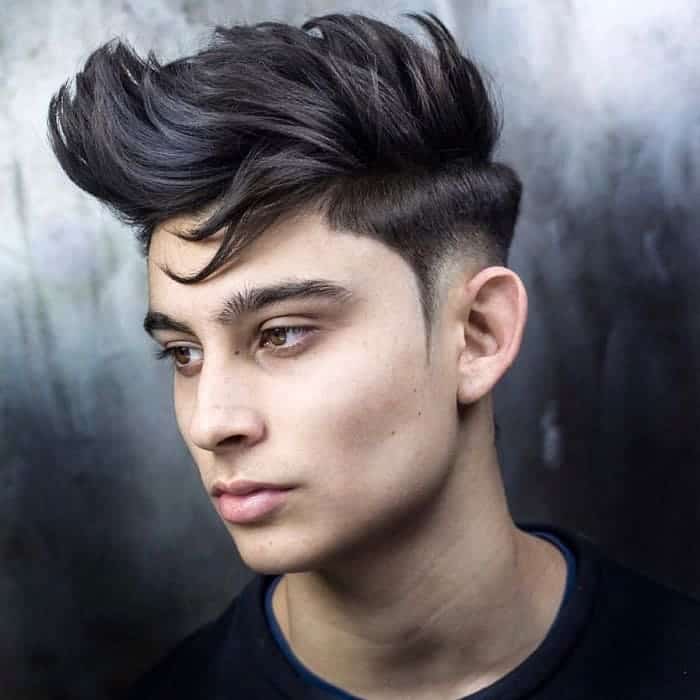It is one of the best barriers to prevent chlorine from getting in your hair. To make the process easier, first wet your hair then apply conditioner all over (without rinsing). How to protect 4c hair when swimming.
How To Protect 4c Hair When Swimming, You must wash your hair after swimming to get rid of the chlorine and mineral buildup. Oiling is the primary and most important step to protect the hair from chlorinated water. This has led to a lot more information being discovered regarding 4c kinks and coils. In addition to its streamlining effects, the humble swim cap tucks away your hair, exposing less of it to chlorinated pool water.
 PART 2 HOW TO KEEP MAXIMUM MOISTURE IN NATURAL TYPE 4C From youtube.com
PART 2 HOW TO KEEP MAXIMUM MOISTURE IN NATURAL TYPE 4C From youtube.com
So before you go for a dip, always remember to: This may result from chemical or mechanical causes such as heat, friction or chemical treatments. These will actually remove the chlorine and buildup you obtain during your swim. Braiding your hair before going to bed is considered as a method to lock in moisture overnight.
This video is about how to protect your kid’s hair when going to the beach.
Read another article:
To prevent 4c hair from breakage, you first need to determine what is causing the breakage. Besides being protective, you�ll also be giving yourself a deep moisturizing treatment thanks to the heat generated by the cap and the conditioner. Wetting your hair prior to hopping in the pool is beneficial as damp hair soaks up fewer chemicals than dry hair. Ensuring the hair is moisturized, minimizing physical manipulation,. Oiling is the primary and most important step to protect the hair from chlorinated water.
 Source: youtube.com
Source: youtube.com
It is one of the best barriers to prevent chlorine from getting in your hair. Oiling is the primary and most important step to protect the hair from chlorinated water. Ensuring the hair is moisturized, minimizing physical manipulation,. Make sure to tuck all your hair in to the swim cap to make sure your hair is completely protected. 4c Hair WashDay Routine How To Keep 4c Hair Hydrated and.
 Source: pinterest.com
Source: pinterest.com
Use a chlorine removal shampoo. You must wash your hair after swimming to get rid of the chlorine and mineral buildup. The best way to protect your hair from chlorine is by keeping it out of chlorinated water. Hair breaks when the strands are dry, brittle or when there is a lot of tension exerted on the strands. Tips How To Keep Extremely Dry 4C Hair Moisturized 4c.
 Source: in.pinterest.com
Source: in.pinterest.com
Of course, the best way to protect hair when swimming involves a combination of everything we’ve talked about today. Before going in the pool, slather your hair (wet or dry) with a rich conditioner. Ensuring the hair is moisturized, minimizing physical manipulation,. Wash your hair as soon as possible after. How to Protect your Hair While Swimming Chlorine water.
 Source: pinterest.co.kr
Source: pinterest.co.kr
Hair moisturizes the hair strands and protects them from absorbing chlorine. 4c is a hair texture that is characterized by densely packed coils. To prevent 4c hair from breakage, you first need to determine what is causing the breakage. Curly hair is porous, and the conditioner fills those holes before the chlorine can seep in. How to Protect Hair from Chlorine Damage Swimming Sun.
 Source: youtube.com
Source: youtube.com
Curly hair is porous, and the conditioner fills those holes before the chlorine can seep in. Even as naturals, we still need protection from the chlorinated water. Hair care tips when swimming tip #1: Maybe it’s obvious, but it’s worth stating: Protecting Your Natural Hair This Summer Swimming With.
 Source: youtube.com
Source: youtube.com
I used this technique all the time in mine and my daughter’s hair. It is one of the best barriers to prevent chlorine from getting in your hair. Wash your hair as soon as possible after. Use a chlorine removal shampoo. SWIMMING WITH NATURAL HAIR 4c natural hair YouTube.
 Source: cosmetize.com
Source: cosmetize.com
Ensuring the hair is moisturized, minimizing physical manipulation,. It’s not just how to protect your little one’s hair, but also how to protect your natural hair as well. Oil penetrates the hair shaft, prevents water from entering into the cuticle, and lowers hygral fatigue (swelling and drying of the cuticle). You must wash your hair after swimming to get rid of the chlorine and mineral buildup. 7 Best Ways to Keep 4C Hair moisturized Cosmetize UK.
 Source: youtube.com
Source: youtube.com
Oil penetrates the hair shaft, prevents water from entering into the cuticle, and lowers hygral fatigue (swelling and drying of the cuticle). Specifically designed for swimmers and people who frequent the pool often, swimmer shampoos for chlorine removal are usually made of natural ingredients that are easy on your hair and skin. Wear a swimming cap to protect your hair at the pool. In general rinsing hair (and skin for that matter) post swim is enough to prevent this. How to slay your edges on 4C type Hair… LOL First.
 Source: youtube.com
Source: youtube.com
In recent years, a lot more people have switched from hair relaxers to natural hair. 4c is a hair texture that is characterized by densely packed coils. Rinse hair with cool water, then shampoo. The salt residue can make hair feel and be drier than it should be. How I Do My Edges With 4c Natural Hair 🙃 🙃 YouTube.
 Source: youtube.com
Source: youtube.com
In general rinsing hair (and skin for that matter) post swim is enough to prevent this. Use a chlorine removal shampoo. In addition to its streamlining effects, the humble swim cap tucks away your hair, exposing less of it to chlorinated pool water. Chlorine can affect hair by dissolving the oil that. How To Keep 4C Natural Hair Moisturized YouTube.
 Source: youtube.com
Source: youtube.com
If you need to dry or straighten or curl your hair, just do it sparingly because your hair already naturally dry, your 4c hair is inclined to have a coarse texture when damaged by heat. Ensuring the hair is moisturized, minimizing physical manipulation,. Quickly spritz it some before heading out the door and toss in your bag to apply on your hair again before you take a dip in the pool or ocean. In recent years, a lot more people have switched from hair relaxers to natural hair. PART 2 HOW TO KEEP MAXIMUM MOISTURE IN NATURAL TYPE 4C.
 Source: fearnobeauty.com
Source: fearnobeauty.com
Curly favorites ouidad water works , eden bodyworks peppermint tea tree shampoo and kinky curly come clean contain sulfates, edta and phytic acid respectively. Use a chlorine removal shampoo. Curly favorites ouidad water works , eden bodyworks peppermint tea tree shampoo and kinky curly come clean contain sulfates, edta and phytic acid respectively. Washing your hair while it is loose is highly discouraged. How to Protect ColorTreated Hair When You Go Swimming.
 Source: justgrowalready.com
Source: justgrowalready.com
Wear a swimming cap to protect your hair at the pool. 4c is a hair texture that is characterized by densely packed coils. In addition to its streamlining effects, the humble swim cap tucks away your hair, exposing less of it to chlorinated pool water. Oiling is the primary and most important step to protect the hair from chlorinated water. 4 Ways to Protect Your Hair When Swimming Just Grow Already!.
 Source: youtube.com
Source: youtube.com
(think back to the bag full of tightly coiled wires.) instead, wash your hair in braided sections to minimize tangling. This may require a shampoo with sulfates, edta or phytic acid. Invest in a good spf. (think back to the bag full of tightly coiled wires.) instead, wash your hair in braided sections to minimize tangling. Summer 2014 Plans For My 4C Natural Hair (styles.







